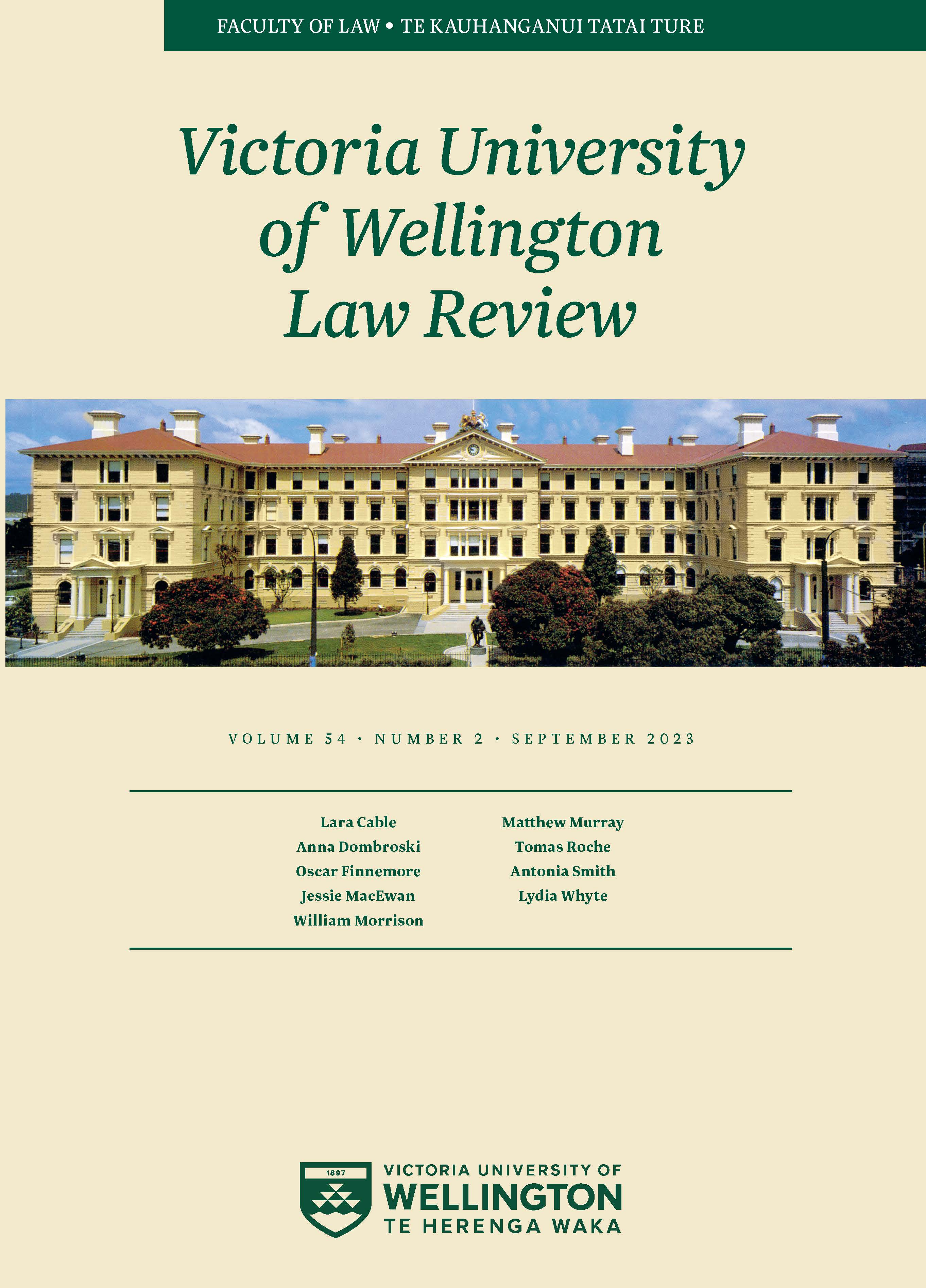Slipping Through the Cracks: How the Distinction Between Compulsion and Duress of Circumstances Fails Victims
Abstract
Feminist critique of criminal defences has largely focused on the inaccessibility of self-defence for victims of intimate partner violence (IPV) who go on to offend. Yet these victims ("IPV defendants") also struggle to access duress-based defences, despite being subject to duress in many aspects of their lives. New Zealand's duress-based defences of compulsion and duress of circumstances are no exception. In this article, it is argued that the inaccessibility of these defences for IPV defendants stems from two key issues. First, applying a "social entrapment" understanding of intimate partner violence, it is argued that the defence of compulsion is overly restrictive. Secondly, this article finds that the human versus non-human distinction between compulsion and duress of circumstances is divorced from the defences' jurisprudential basis of moral involuntariness. These issues have created a crack between the defences, through which IPV defendants are slipping. Where the threat is human-sourced, it is "compulsion or nothing". Canadian and Australian law, while also flawed for IPV defendants, have made progress in recognising their lived experiences. These jurisdictions illustrate two possible approaches for reform in New Zealand. This article finds New Zealand should adopt a statutory solution to the gap and, having analysed key considerations for reform, offers draft wording for a proposed new defence of coercion which, it is envisaged, will better encompass the lived experience of IPV defendants.
Downloads
Downloads
Published
How to Cite
Issue
Section
License
Authors retain copyright in their work published in the Victoria University of Wellington Law Review.


